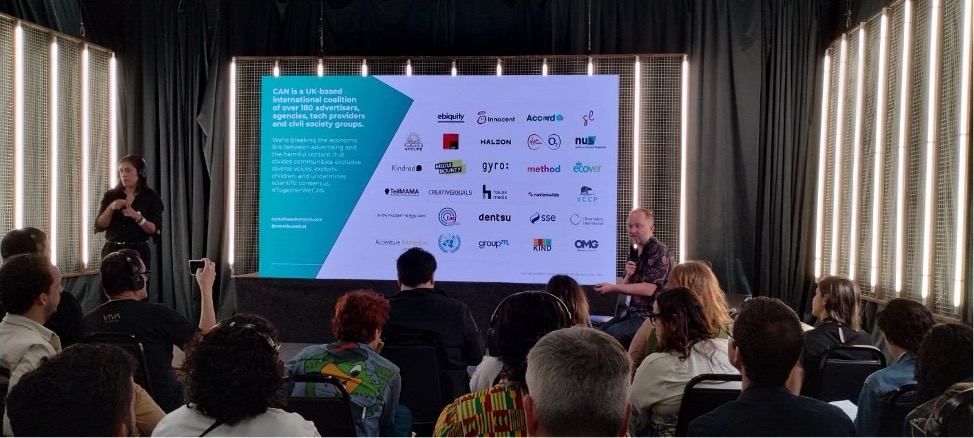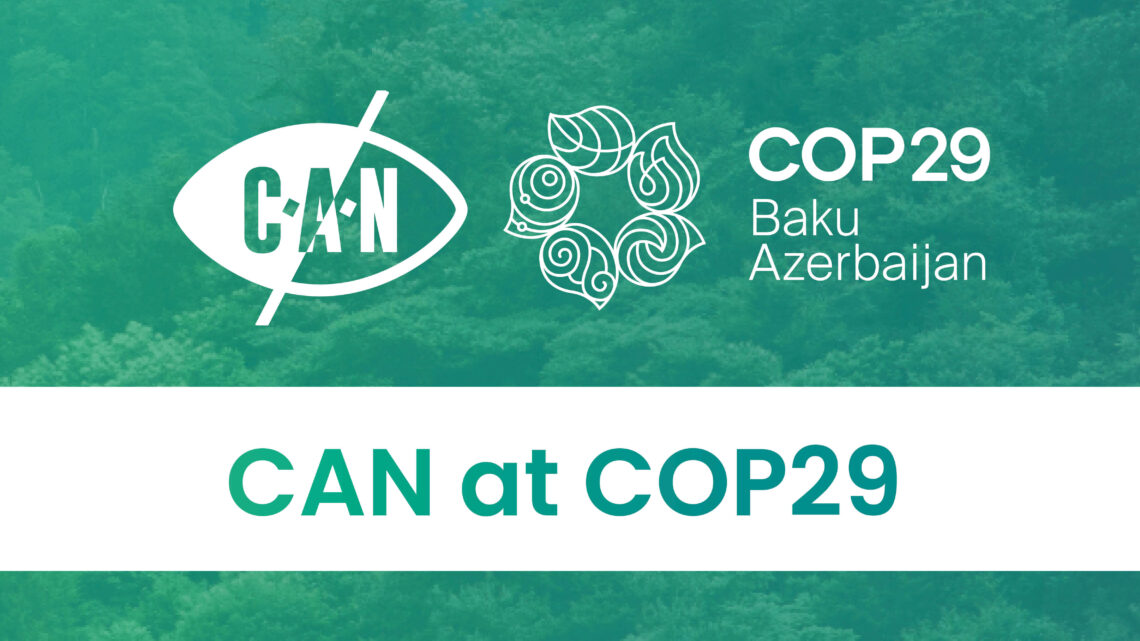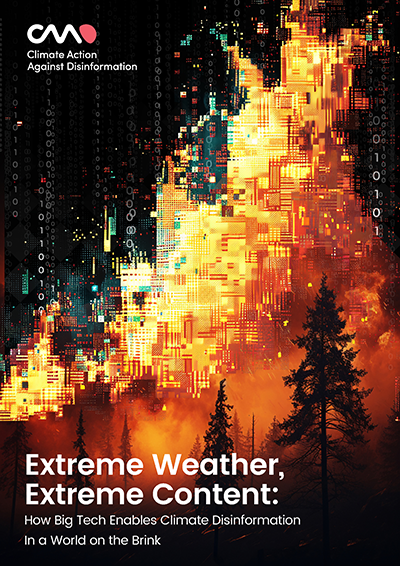“Over the last year we have seen misinformation and disinformation obstructing efforts by authorities during and after extreme weather events in Spain, the US and within the Caribbean. It is critical that this threat to climate action is recognised as an imminent harm and to ensure that the advertising industry has the tools and advice to avoid incentivising for it. CAN will continue to work with the advertising community, climate experts, academics and non-profit organisations to push for information integrity and COP29 represents an important moment for this.”The focus for this year’s two-week event was to be set around finance, with discussions around further taxation on profits from fossil fuels, frequent flyer levies, and wealth tax. The event was also primed to debate around how the private sector can help fund the developing world. All with the ultimate goal of keeping global temperature rises under control, aiming for below 1.5°C.– Alex Murray, CAN’s Head of Advocacy

In the second week of the conference Alex spoke on a panel to discuss misinformation and its threat to climate action. During the conversation he stated:
“The climate information ecosystem has been compromised by the relentless onslaught of disinformation campaigns orchestrated and amplified by powerful actors… that can be seen nowhere more clearly than in instances of extreme weather, like floods in Brazil and Spain, hurricanes in the U.S. and in the Caribbean, where we’ve seen emergency efforts hampered by disinformation efforts.”
Alex also featured in another panel discussion which focused on Climate Misinformation in Brazil, who will be the host of COP30. Sharing his final thoughts on the conference, Alex said:
“This week we have heard story after story about how disinformation is leading to harassment and threats against scientists, disrupting communications teams and their ability to warn communities about extreme weather events and hampering rescue efforts in the aftermath. The Information Integrity initiative represents a really important start, but we need advertisers to play their role alongside the multi-lateral efforts”
Fighting Misinformation at COP29
With worries over the effect of climate misinformation stalling progress, this was a hot topic at this year’s COP.
As we highlighted through our various member briefings throughout COP29, during the conference, concerns were raised about suspicious social media accounts supposedly from Azerbaijani government leaders and representatives. Posts depicted narratives that Azerbaijan is leading the way for green initiatives. To put this into context, Azerbaijan’s fossil fuels make up 90% of their exports and Ilham Aliyev – Azerbaijan’s President even stated at the opening ceremony that oil and gas are a “gift of god.”
Scientists and campaign groups voiced their concerns at COP29 with an open letter asking governments to take action against social media outlets, advertising technology providers, broadcasters, and publishing companies who enable the spread of misinformation.
The Climate Action Against Disinformation (CAAD) released a report revealing the growing problem of climate change disinformation which is hampering progress towards climate change. The report reveals how Big Tech continues to allow “super-spreaders” to pollute their platforms with debunked claims attacking renewable energy and electric vehicles.

The Global Initiative for Information Integrity on Climate Change
Whilst COP29 was taking place in Azerbaijan, the G20 was occurring in Brazil. There, the Brazilian government, the United Nations and UNESCO launched a groundbreaking Global Initiative for Information Integrity on Climate Change. This is the first time governments are taking action against climate disinformation at the multilateral level and already includes six countries: Chile, Denmark, France, Morocco, the United Kingdom and Sweden.
“This initiative will bring together countries, international organizations, and networks of researchers to support joint efforts to combat disinformation and promote actions in preparation for COP30 in Brazil.”
– President Luiz Inácio Lula da Silva of Brazil
The initiative aims to boost support for urgent climate action at a time when scientists are warning that the world is running out of time. Aiming to expand the scope and breadth of research into climate disinformation and its impacts, the effort will gather evidence from around the world to inform and bolster strategic action, advocacy and communications.
On November 16th, CAN Co-Founder Jake Dubbins was in Rio de Janeiro at the G20 for the launch of the global initiative. Jake spoke on stage about the crucial role advertising plays as the economic backbone of our information ecosystems.
You can watch Jake’s full segment here (from 01:30:56 till 01:37:39)
Final thoughts
The conference ended with an agreement calling on developed countries to deliver $300 billion per year to developing countries by 2035. However, there seems to have been a lot of frustration and concern that this is not enough progress. Developing countries who attended put together a group statement over their disappointment:
“Once again, the countries most responsible for the climate crisis have failed us. We leave Baku without an ambitious climate finance goal, without concrete plans to limit global temperature rise to 1.5°C, and without the comprehensive support desperately needed for adaptation and loss and damage.”
There are also several things that advertisers and agencies can do during crucial climate moments such as COP and beyond. These include:
- Ensure you use the CAAD definition to guide you on what kind of content you classify as climate mis/disinformation, and check your inventory for a climate misinformation sites
- If you are meeting contacts within tech platforms, ask them about their plans regarding the monetisation of climate mis/disinformation and how they are tackling the problem
- Refer to CAN’s sustainability and mis/disinformation manifestos for guidance on how to avoid funding misinformation, and protect the integrity of climate information
- Review the recommendations for advertisers within the United Nations Global Principles for Information Integrity (see pages 27-28).
This was certainly an interesting year for COP, we look forward to attending next year and to see what progress has been made.
In the meantime, CAN continue to advocate for sustainable advertising, and to mitigate the risk of misinformation around climate change.
To find out more, head to our manifestos page here.

